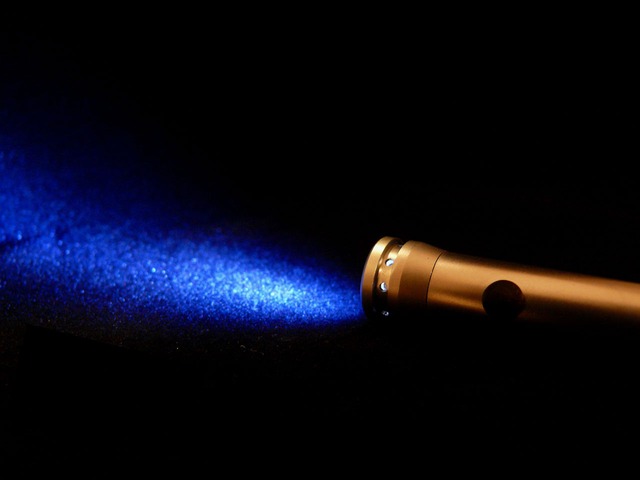Sudden power outages can be frustrating and troublesome, especially when they last a long time. If a power outage is 2 hours or less, don’t be concerned about losing your perishable foods. For prolonged power outages, though, there are steps you can take to minimize food loss and to keep all members of your household as comfortable as possible.
Before the storm:
- Keep a flashlight and extra batteries handy. Use care when burning candles; open flames are a fire hazard.
- Gather extra blankets or a sleeping bag for each person. Portable heaters and burning candles that are left unattended, especially around children and pets, can create a fire hazard.
- If you have a water well and pump, keep an emergency supply of bottled water and/or fill your bathtub with fresh water.
- Stock an emergency supply of convenience foods that do not require cooking.
- Keep a battery-powered radio with extra batteries on hand. Tune in to a local radio station for current storm information.
- Have a hard-wired telephone or a charged cell phone handy in the event you need to report your electricity is out. Mobile phones can be charged in your vehicle using a car charger when power is out. A smart phone can be used to access online information sources.
- JCP&L has placed calls to their critical care customers who use life support equipment. If you use life support equipment and did not receive a call from us in the past 48 hours, call 1-888-LIGHTSS (1-888-544-4877). If you are not already registered for JCP&L’s critical care program, you will receive a form that must be completed by their doctor.
If You Lose Power:
- Only use flashlights for emergency lighting, candles can cause fires.
- Keep refrigerator and freezer doors closed. Most food requiring refrigeration can be kept safely in a closed refrigerator for several hours. An unopened refrigerator will keep food cold for about 4 hours. A full freezer will keep the temperature for about 48 hours.For more information about food safety visit our food page.
- Take steps to remain cool if it is hot outside. In intense heat when the power may be off for a long time, consider going to a movie theater, shopping mall or “cooling shelter” that may be open in your community. If you remain at home, move to the lowest level of your home, since cool air falls. Wear lightweight, light-colored clothing. Drink plenty of water, even if you do not feel thirsty.
- Put on layers of warm clothing if it is cold outside. Never burn charcoal for heating or cooking indoors. Never use your oven as a source of heat. If the power may be out for a prolonged period, plan to go to another location (the home of a relative or friend, or a public facility) that has heat to keep warm.
- Only use generators away from your home and NEVER run a generator inside a home or garage, or connect it to your home’s electrical system.
- Unplug appliances like refrigerators and freezers, and sensitive electronic equipment like TVs and computers, so that they won’t overload when power is restored.
- Call 1-888-LIGHTSS (1-888-544-4877) to report outages immediately, or report online at firstenergycorp.com/reportoutage. The more people who call, the faster JCP&L can pinpoint the location where crews must be sent for repairs.
- Immediately report downed wires to 888-544-4877 or your local police or fire department (911). Never go near a downed power line, even if you think it’s no longer carrying electricity. Stay more than 30 feet away from downed power lines, don’t walk or drive near or over a downed line, and watch out for anything touching the line. If a wire falls on a vehicle, passengers should stay inside until help arrives.
- Keep children and pets away from any wires.
- When operating a generator, always disconnect the power coming into your home. Otherwise, power from your generator could be sent back onto the utility lines, creating a hazardous situation for utility workers. The proper generator should be selected and installed by a qualified electrician.
- Stay out of flooded basements, even if the power is off. Stay away from the breaker box if it’s in a flooded basement.
After an Outage:
- Throw away any food that has been exposed to temperatures 40° F (4° C) for 2 hours or more or that has an unusual odor, color or texture. When in doubt, throw it out!
- If food in the freezer is colder than 40° F and has ice crystals on it, you can refreeze it.
- Contact your doctor if you’re concerned about medications having spoiled.\
- Restock your emergency kit with fresh batteries, canned foods and other supplies
Regional Weather, Hazards, Emergency Preparedness Map
Zoom in or our on the map for more/less detail
Social Media
Social Media is an excellent way to get and pass-on information during an emergency as telephone lines may become congested or not functioning during a storm. It is also a great source of information for emergency information from agencies in the area.
- Mendham Fire Department: Twitter
- Mendham Fire Department: Facebook
- NJ Office of Emergency Management: Website
- NJ Office of Emergency Management: Twitter
- NJ Office of Emergency Management: Facebook
- Morris County Office of Emergency Management: Website
- Morris County Office of Emergency Management: Twitter
- JCP&L: Report a Power Outage
- FEMA’s Ready.gov: Hurricanes
- National Weather Service’s National Hurricane Center
Information presented on this page is from Ready.gov, First Energy Corporation, Red Cross and other websites

